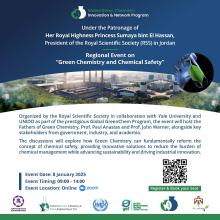Developing Renewable Bioplastics from Bio-Derived Monomers
Enhancing the efficiency of material processing, utilization, and recycling is pivotal for advancing sustainability in modern society. The objective of this study is to create sustainable methods for converting non-food biomass into recyclable polymers. One key compound, 4,4'-biphenyldicarboxylic acid (BPDA), is used as an additive in copolymer production and as a blending agent to improve the properties of polyester. BPDA was synthesized through the oxidation of 4,4'-dimethylbiphenyl (DMBP), a compound that can be efficiently derived from biomass-sourced 2-methylfuran.




